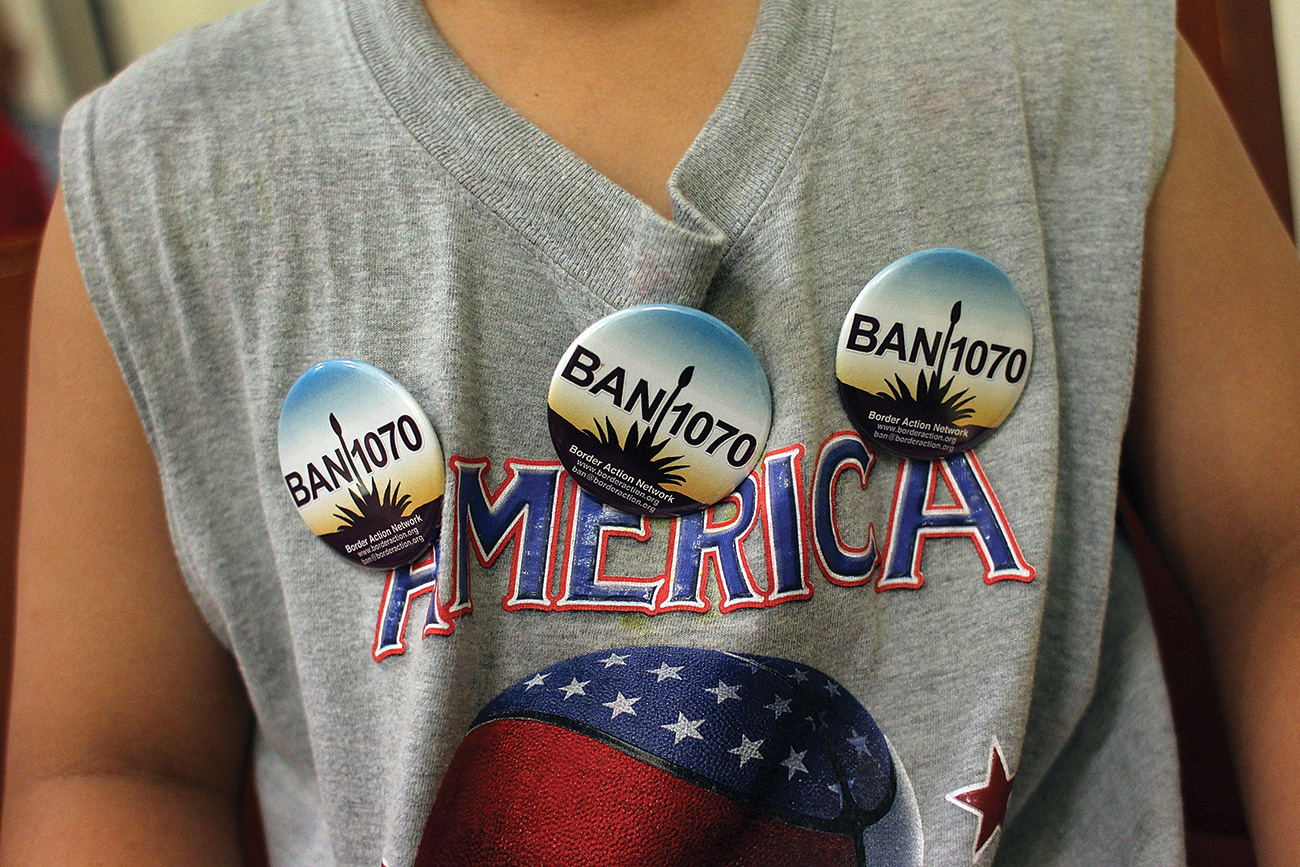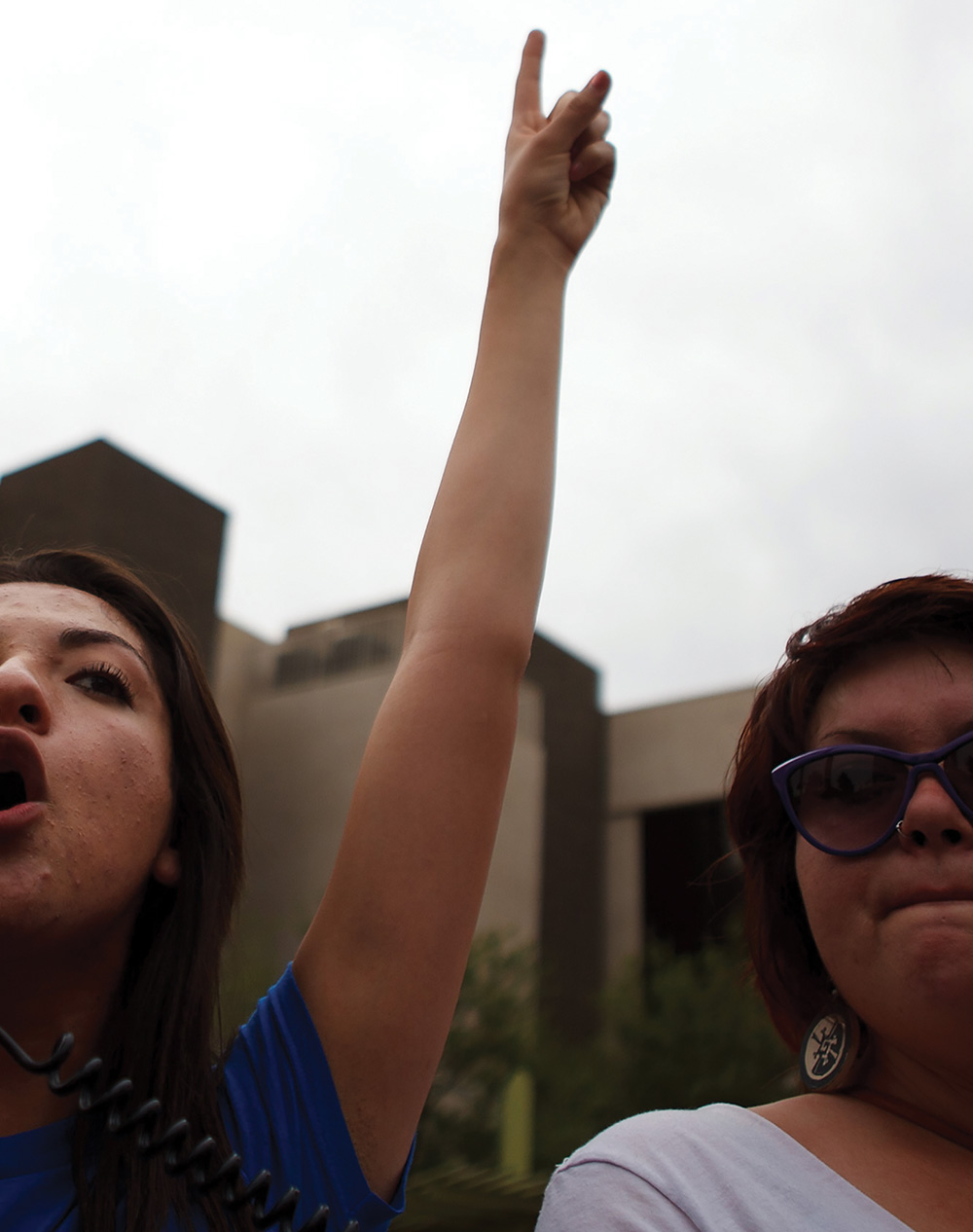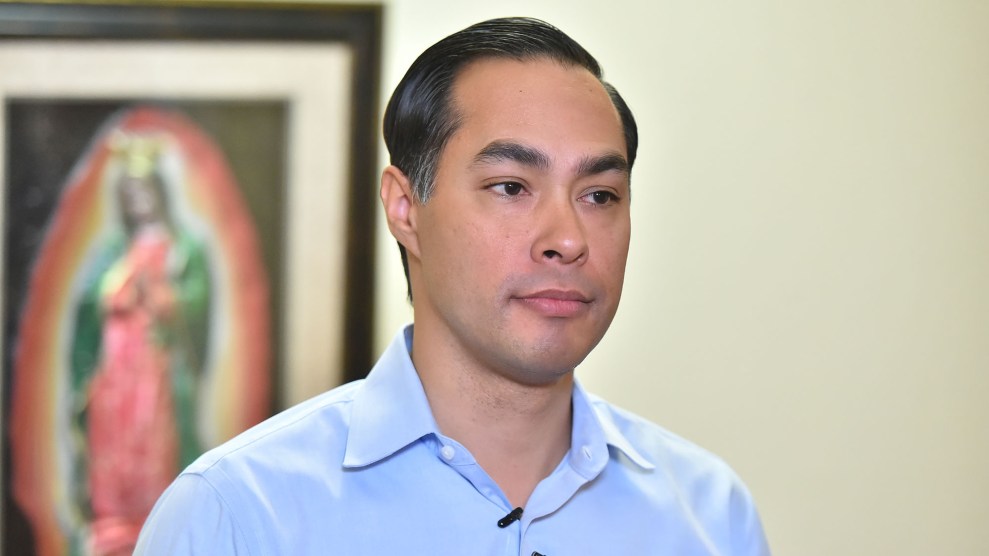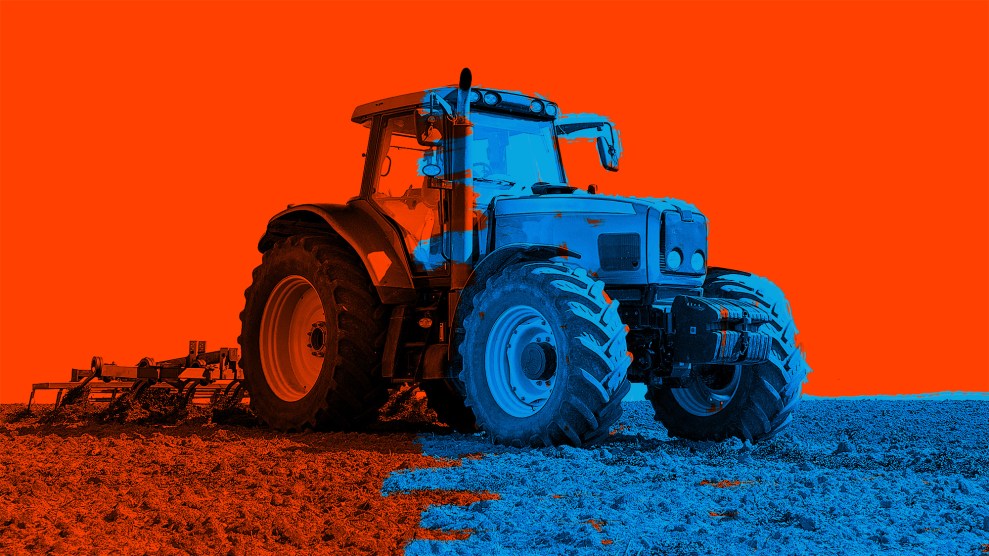Clipboard in hand, Magda Morales politely approaches people waiting for the bus in downtown Tucson to ask if they’ve signed up to vote. The city’s sweltering transit hub is decidedly less bustling than it was pre-pandemic, but still noisy enough that she has to speak loudly through her white surgical mask.
“Hi mija, are you registered to vote?” she asks a young Mexican American woman awaiting a transfer.
“I’m only 17,” the woman responds quietly through her black cloth mask. “I turn 18 in October.”
“Oh mija, but you can register if you turn 18 before the November election. Wanna register?” Morales asks, sitting on the opposite side of the bench, trying to keep a safe distance. She pulls out a voter registration form and asks the young woman for her ID. When the woman says she needs a new one, Morales quickly responds with a half-joking “Gotta get one, girl!” and they both giggle. If she has an ID the next time they meet here, Morales says, she can register to vote. “Have a nice day, mija.”
The 42-year-old Morales, a canvasser for the civic engagement group Mi Familia Vota, speaks in the familiar tone of a Mexican American tía who makes you feel welcome but will also tease you. When one man tells her that he couldn’t register because of his felony record, Morales quickly says, “¡Ya pórtese bien!”—start behaving better!
Morales’ trip to the Ronstadt Transit Center (yes, named after Linda and her family) in the brutal August heat is the first time Mi Familia Vota has done outreach there since the pandemic started. The organization is one of several grassroots groups trying to mobilize Arizona’s Latinx voters. As of mid-September, the groups had registered nearly 30,000 voters and made more than 1 million phone calls. Their goal is to mobilize 1 million voters on Election Day.
Once the cradle of Goldwater-style Republicanism, Arizona politics are changing, due in no small part to its growing Latinx electorate, which increasingly tilts Democratic. The party cannot flip the state in November without strong turnout from Latinos, who make up nearly a quarter of the state’s eligible voters. Hanging in the balance are 11 Electoral College votes and a key race between Republican Sen. Martha McSally and Mark Kelly, the retired astronaut who’s married to former Democratic Rep. Gabby Giffords. If Joe Biden carries the state, he will owe his win to the Latinx organizers and activists who have spent the past decade building networks, not to support the Democratic Party but to protect their own community.
Many of the young Latinx organizers trying to get out the vote were galvanized in April 2010, when Republican Gov. Jan Brewer signed one of the nation’s most extreme anti-immigrant bills. SB 1070 required police officers to ask about the citizenship status of anyone they stopped and suspected might be in the country illegally. It also made it a crime not to produce legal residency documents when asked to do so by a cop or to have an undocumented person in your car or home. The law wreaked havoc on Latinx communities statewide, especially in Maricopa County, where Sheriff Joe Arpaio delighted in using it to intimidate and harass residents.
Thousands of people took to the streets to protest, including young people who walked out of school in huge numbers for weeks. “We weren’t activists, we were people who were under a very real threat,” Abril Gallardo says. “Our families were going to be torn apart, our loved ones were going to be terrorized.” Today, Gallardo is known as Mother Lucha for helping to found the grassroots organization Living United for Change in Arizona (LUCHA) in response to SB 1070. (LUCHA is dedicated to “help protect the Latinx community in Arizona” and “defend our existence.”) The law became “a powder keg for Latino activism and rebuilding the Latino movement that had been absent for 20 to 30 years here,” says Tomas Robles, co–executive director of LUCHA.
It wasn’t just young adults who were energized and enraged by SB 1070. The children who saw their parents live in fear or lost family members to deportation are now old enough to vote: An estimated 100,000 Latinx potential voters have turned 18 since the 2018 midterms.
In late August, I observed a video call organized by LUCHA. A couple of Latina teens in Phoenix listened to Harry Styles and BTS as more young women logged in. Some weren’t old enough to vote, and a couple who were couldn’t vote because they weren’t US citizens. But that didn’t stop them from discussing the importance of rallying friends and relatives to vote. By the end of the call, they’d pledged to share information with eligible family members about how they could vote by mail.
Even though around 80 percent of Arizonans already vote by mail, it can be a tough sell to new Latinx voters; a recent poll found that nearly 40 percent of Latinx respondents in battleground states didn’t trust the postal service to deliver their ballots. “Studies have shown that Latinos are so skeptical of it, just like African Americans,” says Voto Latino’s CEO, María Teresa Kumar, “and we don’t want lack of information and skepticism to prevent participation.” Many Latinos may instead “want to physically be able to go and vote, so if that’s the case, we have to make sure that vote is done in a safe manner.”

In late July, Mi Familia Vota launched its #BastaTrump (Stop Trump) campaign, which executive director Hector Sanchez describes as the “most aggressive campaign we’ve ever had in the Latino community to focus on one particular person…Donald Trump is the biggest threat for the Latino community, probably in the history of this nation,” Sanchez says. “If he gets reelected, I’m extremely concerned for the future of the Latino and immigrant communities.”
A #BastaTrump video I came across on Facebook made me feel all the feels. Over a montage of cellphone footage of Latinx families at birthday parties, graduations, and family gatherings, a female narrator says, “You’ve come far, took many roads, lived through so much joy…and sometimes heartbreak.” It then cuts to footage of white kids in a high school cafeteria chanting “Build the wall” at Latinx students, and a white man yelling out a car window, “Trump’s deporting your illegal cousins today!”
“But you never stop wanting and dreaming and fighting,” the narrator continues as the music crescendos and images of Latinx doctors, farmworkers, teachers, and soldiers flash by. “Haven’t you worked enough, suffered enough, sacrificed enough for a better life?” Trump appears twice for only a few seconds in the two-minute video, which ends with a call to “protect what you’ve worked so hard to earn” by registering to vote. The video is anti-Trump, but more importantly it is pro-Latinx and pro-immigrant, Sanchez says. “We work hard. We contribute. We’re a centerpiece of the fiber of the American democracy and yet, we are always perceived as invaders, as somebody that doesn’t belong here.”
But that message of pride and hard work often gets lost when both parties try to appeal to Latinx voters with shallow “Hispandering” that takes their votes and values for granted. Eduardo Sainz, the Arizona state director of Mi Familia Vota, says that the millions of phone calls his group has made show that “the community wants to participate” in the election—if it feels that it’s being listened to. “Candidates sometimes don’t pay attention to Latinos,” Sainz says. “There needs to be investment in Latinos in the same way all other demographics get investment to ensure that our community comes to participate.”
While both parties see Arizona as a battleground state (Phoenix was the hottest election ad market from April to early August), Sainz thinks Democrats still haven’t done enough to win over its Latinx electorate. Chuck Rocha, who headed Bernie Sanders’ successful Latinx outreach, wrote this spring in a New York Times op-ed that “if Mr. Biden takes a conventional approach”—namely courting older Latinx voters with cable ads in Spanish—“and talks to the same little sliver of Latinos in Arizona who everyone talks to, he could be in trouble.” If Biden taps into the state’s activism, Rocha says, he “can reshape the electoral map and win.” In late May, Biden named Julie Chávez Rodríguez, a granddaughter of labor activist Cesar Chávez, as a senior adviser; he also brought on Latinx vote directors in 11 states. Kumar notes approvingly that many of the new hires are young organizers who have done work on the ground.
The big question that keeps getting asked is, Will Latinos show up, and will they help flip Arizona? “The very first time that I was asked that question, I said, ‘I actually want to ask a different question,’” Alejandra Gomez, the co–executive director of LUCHA, tells me. “If Latinos were truly invested in, what would our participation look like? If the system was not created for us, how do we actually build a system that is for our communities? Currently there are systems that are keeping our communities from being able to access the vote and being able to participate. So that question is very frustrating.” Sainz agrees: “Have you invested in the Latino community to ensure that they have the resources and the tools and the information to participate? The answer is no. We see it on campaigns, and we see it once people get elected into office. They don’t prioritize our community.”
Perhaps a better question is whether Democrats can tap into the energy that has already transformed Arizona. Organizers point to a list of recent victories that could not have happened without the work of the Latinx community: State Sen. Russell Pearce, the architect of SB 1070, was recalled in 2011; anti-birthright-citizenship bills in the 2011 legislative session were shut down; Arpaio lost his 2016 reelection campaign; and in 2018, Arizonans elected the state’s first woman to the US Senate and the first Latina mayor of Tucson, both Democrats. And from 2014 to 2018, Latinx voter turnout increased by 50 percent nationwide. Those accomplishments are “reminders that we have power,” says Gomez. “All these incremental victories were like the wind underneath our sails.” Or as Sainz puts it, “We’ve been flipping Arizona.”














